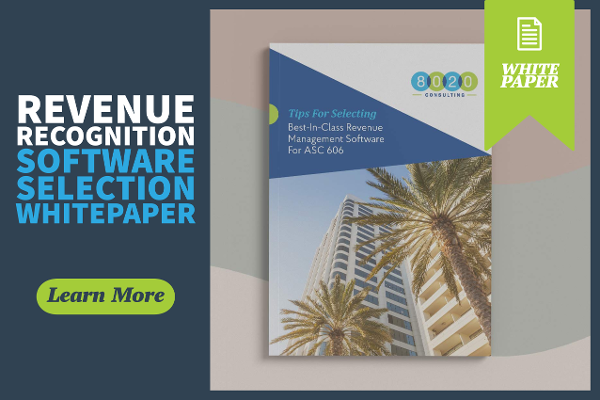Notes From the Field: MS Dynamics 365 Implementation Considerations
- Updated on December 31, 2024
- Ellen Vayner
- Approx. Read Time: 6 minutes read
- Published on October 2, 2020


For any ERP implementation, the goals are usually operational scalability and process streamlining, resulting in increased overall efficiency. To achieve these goals, it is important the chosen ERP system is a strong fit for the organization. There are many ERP systems on the market now, from fairly straightforward (Odoo) to highly specialized (Investran) to very versatile (SAP). If Microsoft Dynamics 365 (MS Dynamics 365) is on your list of options, here are important considerations:
You’ll need to consult your company’s IT department before choosing MS Dynamics 365, which requires several other Microsoft products. If those products are not already a part of your company’s IT ecosystem, you will need to consider the in-house expertise and the additional costs associated with the decision to implement MS Dynamics 365.
Some of the Microsoft products that might be required to support a MS Dynamics 365 implementation are Azure, DevOps and MS Dynamics Lifecycle Services. Each of these products has its own licensing and maintenance requirements adding to the financial cost of the implementation as well as the burden on the IT department.
PowerApps is a Microsoft product that is not required for implementation or maintenance, but it allows for an increase in MS Dynamics 365 capabilities and possible ease of use. It has prebuilt templates Finance can use, and customized templates can be created by developers. An example of a customized template would be a New Vendor form. Creating a New Vendor form in PowerApps allows employees from any department to request a new vendor be set up without having to log into MS Dynamics 365. The form will automatically populate the information in MS Dynamics 365, where the AP team can easily review and approve the new vendor. There are at least two benefits in the above example:
Microsoft Dynamics 365 has two products:
While your business might be considered a “smaller” business from a revenue or number of transactions perspective, it might be complex enough to require MS Dynamics 365 Finance. Your third-party project manager would be able to determine which of the two products is the best fit for your company’s business requirements.
(Note: Microsoft Dynamics 365 contains several other products besides Finance: Sales, Marketing, Customer Service, Field Service, Project Service Automation, Supply Chain Management, Commerce and Human Resources.)
While Microsoft has an in-house consulting service that implements Microsoft products, it is better to find an implementer that specializes in your industry. There are several reasons for this recommendation.
First, a specialized implementer might have their own proprietary product developed specific to your industry and expands the ERP system’s capabilities. For example, AKA Enterprise Solutions developed a proprietary product for financial industry consolidations and allocations called DynamicsAdvantage. “DynAd” also allows for uploading data for multiple legal entities in the same upload file, something that standard MS Dynamics 365 does not support. Both these features would increase the capabilities of MS Dynamics 365 Finance and efficiency of your team’s operations.
Secondly, a specialized implementer has experience in specific implementations geared toward your industry. Therefore, they have experience in avoiding the standard, and not-so-standard, pitfalls as well as following implementation best practices. This saves time and money during the implementation and delivers the end product according to the original requirements. For example, Concepts in Technology has specialized in Retail and Fashion Manufacturing for over 15 years and thus has seen and solved many issues related to implementations in these industries.
Your third-party ERP system implementation project management professional, who has worked with many implementers, would be able to recommend the implementer that would be the best fit in your specific situation.
If you’d like to learn more about project managing an ERP implementation, watch our Q&A:
Both Business Central and Finance are modular (i.e., you can implement modules that cover specific capabilities). For example, consolidations are not a part of the standard BC offering, but you can implement the Multi-Entity Management (MEM) module to add this functionality to your MS Dynamics 365 Business Central ERP.
In another example, Dynamics 365 Finance has Loan Management and Fixed Assets modules included in the licensing price, but their implementation costs extra. Therefore, these modules can be implemented in Phase II if there are implementation budget and/or time constraints.
Your third-party project manager would be able to provide cost-benefit analysis on what modules should be implemented and in what phase considering business requirements and budget constraints.
In addition to the internal modules, each ERP system has external modules – capabilities provided by third parties that are licensed separately but are integrated into the ERP and thus appear to be a part of it (meaning a user doesn’t have to login separately into another software). For example, for Dynamics 365 Finance, the Optical Character Recognition (OCR) for the AP module might be provided by DynAd, while automation of bank reconciliations for Cash & Bank Management module might be provided by SK Global Software.
These external modules carry additional license and maintenance costs that your third-party project manager will take into consideration when providing recommendations. For example, in some situations, instead of implementing a MS Dynamics 365 AP module, it is more beneficial to implement a fully external AP software package such as Concur Invoice.
Microsoft offers three ways to report out of MS Dynamics 365 Finance (in addition to the standard export-to-Excel reporting available with most ERP systems):
During ERP implementation, it is important to take into consideration the reports the business wants to produce in the future because the report requirements might affect the data structure. However, the implementation of a separate reporting tool, if desired, is done most efficiently after the ERP goes live.
If you are considering MS Dynamics 365, you should compare it against at least a few other ERPs, such as Oracle Netsuite, Sage Intacct, Acumatica, Syspro. They have slightly different capabilities and implementation costs and timelines. For example, Intacct doesn’t provide for HR security, but if you don’t have salaries and other sensitive HR data in Intacct, it wouldn’t matter to you.
When selecting an ERP system, it is important that the selection process is as objective as possible. One way of increasing objectivity is grading the answers to the RFQ questions and grading the ERP demos. This somewhat mitigates the feeling that the people usually get from a great sales pitch – we have all been there where the sales pitch is amazing but the product that one purchases is a far cry from the one shown in the pitch.
If you’d like to learn more about the nuances of financial system selection, download our whitepaper. It offers a lot of insight into the process of system selection:

You can also download our free guide to ERP Implementation Stages and Phases to learn more about implementations.
Ellen Vayner has 25 years of experience in management consulting and project management. She has worked with multiple multinational and cross-functional teams to achieve a variety of results, including several financial systems implementations, such as D365 F&O, D365 BC, NetSuite and Concur; the establishment of an invoice-to-cash process; an international manufacturing facility move; and streamlining operations and organizational structures for clients in various industries. She has worked with clients in entertainment, manufacturing, oil and gas, biotechnology, banking, consumer products, semiconductor and real estate, and her specialties include corporate strategy assessment and development, corporate and operational finance, business efficiency assessment, business case development, systems implementations and project management. She holds an MBA in Finance and International Business from Carnegie Mellon’s Tepper School of Business, attended London School of Economics as well as took courses at universities in Germany, the Czech Republic and Slovakia. She also holds a Project Management Professional certification from the Project Management Institute.
Organizations increasingly use audit management systems (AMS) to ...
Read MoreAuditing plays a vital role in ensuring compliance, managing risk, ...
Read MoreManaging compliance and security is increasingly complex, especially ...
Read More